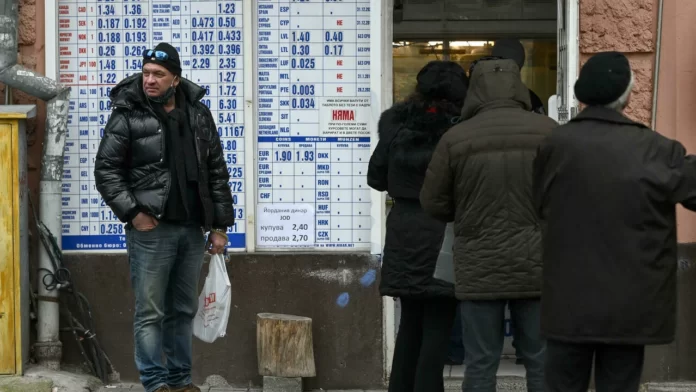Bulgaria may join the eurozone in 2024, but the EU’s poorest country is split on the idea of abandoning its national currency in favour of joining the single European currency club.
The change excites Krasimir Atanasov, a 37-year-old tennis coach standing in line at a currency exchange office in Sofia, Bulgaria’s capital.
He has fled overseas, to Finland in his instance, like millions of his compatriots, and wants Bulgaria to “become like other European countries” and use the euro.
Valeria Petrova, 58, a self-described “patriot,” nevertheless, says she wants to “maintain the lev,” Bulgaria’s native currency.
She is concerned that the country may end up in the same situation as Greece, which was forced to adopt harsh structural reforms in exchange for aid during a debt crisis that threatened its eurozone membership.
Another man in line behind her expresses concern that the euro may lead to higher pricing, a concern shared by many Europeans when the currency was introduced in 12 nations on January 1, 2002.
Even the ABTTA, one of the country’s tour operator associations, argues that while the one currency would make doing business easier for the industry, it is concerned about a potential “loss in purchasing power” among Bulgarians.
Bulgaria became a member of the European Union in 2007.
Last year, the country joined the European financial union and an exchange rate mechanism, which requires a candidate country to spend at least two years in the eurozone before being allowed.
The anticipated exchange rate for accession is 1.95583 lev per euro, which is the same as it has been when the eurozone was established in 1999.
After a year of political paralysis, the new government sworn in earlier this month committed to take “all the steps necessary to enter the eurozone.”
To persuade sceptics, Finance Minister Assen Vassilev has called for a “wide public debate.”
In a November interview with AFP, Vassilev was asked if the target date of 2024 for admission was realistic. “It’s going to take some work, but I think it’s doable,” he said.
With the exception of the Socialist Party, economist Ruslan Stefanov of the Centre for the Study of Democracy noted that “there is a relative consensus” across the political spectrum in favour of eurozone membership (CSD).
However, many Bulgarians are concerned about price increases because they recall the 1996-97 economic crisis, when 14 banks failed and inflation soared to nearly 300 percent.
Bulgaria established an independent currency board under pressure from the International Monetary Fund, which set the lev-euro exchange rate.
Currency boards are the most stringent alternative since they only issue local currency when foreign currency is available to back it up, limiting a government’s capacity to print money and borrow excessively.
The currency board, viewed by some as a shackle on government policy, helped successive Bulgarian governments keep their budgets in check by lowering inflation.
With a public debt load of around 24% of GDP, the country has one of the lowest public debt burdens in the EU.
When Bulgaria enters the euro, some of the currency board’s safeguards will be removed, and the country would be able to borrow at lower rates, which concerns some authorities.
Vassilev believes that another mechanism should be put in place to prevent “the country from sliding into a debt spiral.”
Vassilev is aware of the potential hazards at home, as well as the “lack of political will” from other member states in regard to Bulgaria’s admission.
Despite being the poorest member of the EU, the country of slightly under seven million inhabitants meets the macroeconomic requirements for euro membership.
Bulgaria’s EU allies are concerned about the country’s high degree of corruption.
“Questions out there on Bulgaria and the structures that they have in place” to combat problems like money laundering and corruption, according to a European source.
Putting an end to such abuses is at the heart of the new government’s agenda, but it still has a long way to go before convincing the EU that it is ready.
According to the source, Brussels must ensure that Bulgaria’s admission “doesn’t backfire in some way.”
Some Bulgarians are concerned that their bid to join the eurozone will be put on hold for as long as the country’s Schengen candidacy.
Despite having met the technical conditions to enter the border-free zone 10 years ago, it is still not a member.

